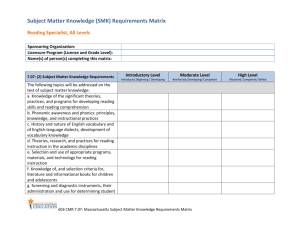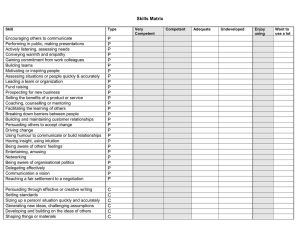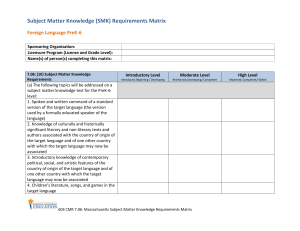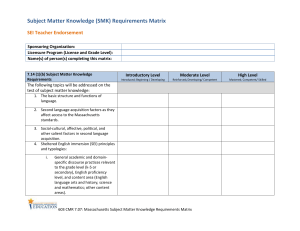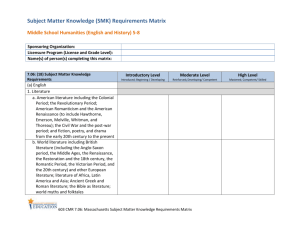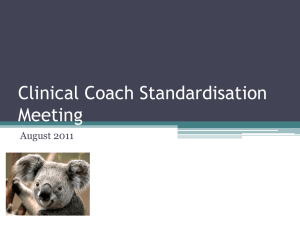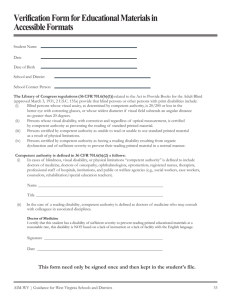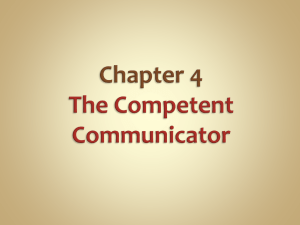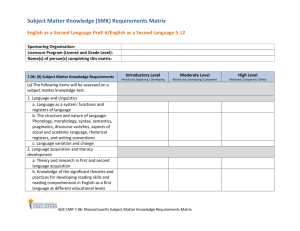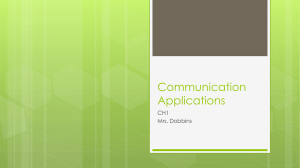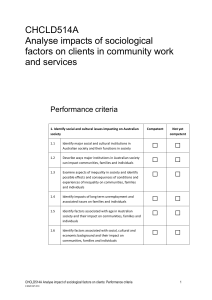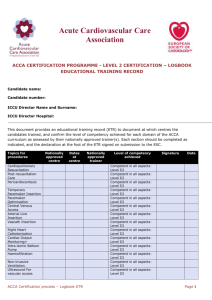Revised Illinois Professional Teaching Standards
advertisement
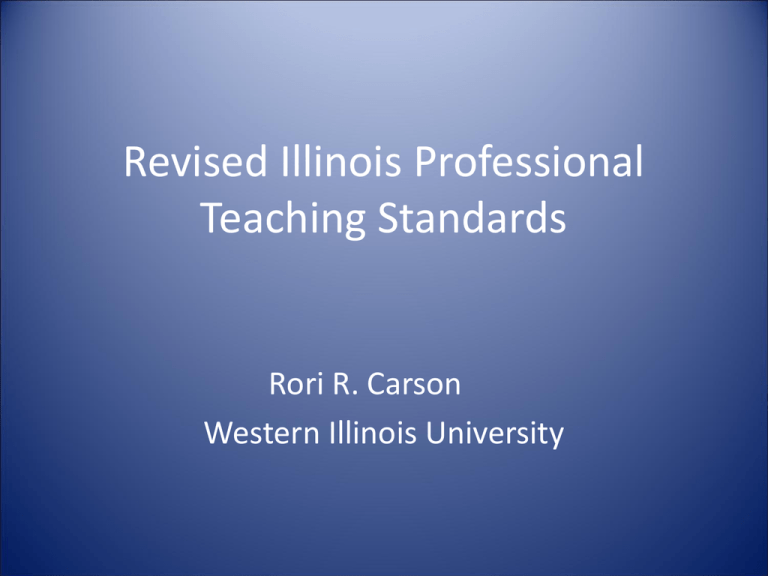
Revised Illinois Professional Teaching Standards Rori R. Carson Western Illinois University Current IPTS • Dated • Do not contain indicators that address current best practice (e.g. RTI, data-driven decision making, etc.) • Address 11 components • Lack cohesion, requiring the use of additional standards in core technology and technology ISBE Charges to the Committee Focused on Three Areas • Individualized Standards - draft a set of outcomes-based standards to address the needs of Special Education, English Language Learners, and Gifted. • Literacy Standards - develop standards that all teachers will be required to meet addressing the reading needs of children and incorporating the current English Language Arts Standards for all Teachers into one set of standards. • Technology Standards - Consider whether there is a continuing need to keep separate standards for Technology Standards for All Teachers. Committee Composition • Members have experience and expertise in Reading Special Education Gifted English Language Learners Technology • Members represented School Administrators Educational Agencies Teachers Universities • Group Leader was Lisa Monda-Amaya from the University of Illinois • Decisions and recommendations were made by consensus Standard 1 Teaching Diverse Learners The competent teacher understands the diverse characteristics and abilities of each student and how individuals develop and learn within the context of their social, economic, cultural, linguistic, and academic experiences. This teacher uses that information to create instructional opportunities that maximize student learning. Standard 2 Content Area and Pedagogical Knowledge The competent teacher has in-depth understanding of content area knowledge, which includes central concepts, methods of inquiry, structures of the discipline(s), and content area literacy. This teacher creates meaningful learning experiences for each student based upon interactions among content area and pedagogical knowledge, and evidence-based practice. Standard 3 Planning for Differentiated Instruction The competent teacher plans and designs instruction based on content area knowledge, diverse student characteristics, student performance data, curriculum goals, and the community context. This teacher plans for ongoing student growth and achievement. Standard 4 Learning Environment • The competent teacher structures a safe and healthy learning environment that facilitates cultural and linguistic responsiveness, emotional wellbeing, self-efficacy, positive social interaction, mutual respect, active engagement, academic risk taking, selfmotivation, and personal goal setting. Standard 5 Instructional Delivery The competent teacher differentiates instruction by using a variety of strategies that support critical and creative thinking, problem-solving, and continuous growth and learning. This teacher understands that the classroom is a dynamic environment requiring ongoing modification of instruction to enhance learning for each student. Standard 6 Reading, Writing, and Oral Communication The competent teacher has foundational knowledge of reading, writing, and oral communication within the content area and recognizes and addresses student reading, writing, and oral communication needs to facilitate the acquisition of content knowledge. Standard 7 Assessment The competent teacher understands and uses appropriate formative and summative assessments for determining student needs, monitoring student progress, measuring student growth, and evaluating student outcomes. This teacher makes data-driven decisions about curricular and instructional effectiveness and adjusts practice to meet the needs of each student. Standard 8 Collaborative Relationships The competent teacher builds and maintains collaborative relationships to foster cognitive, linguistic, physical, and social/emotional development. This teacher works as a team member with professional colleagues, students, parents/guardians, and community members. Standard 9 Professionalism, Leadership, and Advocacy The competent teacher is an ethical and reflective practitioner who exhibits professionalism, provides leadership in the learning community, and advocates for students, parents/guardians and the profession, and provides leadership in the learning community.
